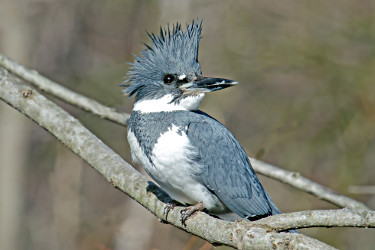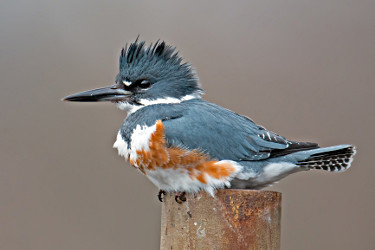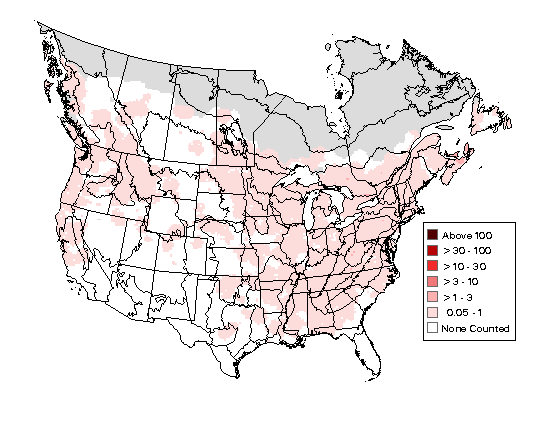Belted Kingfisher

Belted Kingfisher Information
Length: 13"
Habitat: Edges of ponds, lakes, rivers, streams, and coastal bays; road cuts and gravel pits near clear, open water. Requires perches above water for spotting prey. During breeding season, requires exposed dirt banks for nest sites.
Diet: Small fish (staple), amphibians, reptiles, crayfish, mollusks, insects, small mammals. Occasionally, wild fruits.
Additional Information
Belted KingfisherPhoto, description, habitat, behavior, diet, nesting, migration status, and conservation status. Includes range map and song. (From BirdWeb)
Female Belted Kingfisher

© B. Kushner
Belted Kingfisher
Identification Tips
- Large, short-legged, big-headed, big-billed bird
- Hovers over water and dives headfirst into water in pursuit of fish
- Slate blue head, with white spot near lores
- White chin, throat and neck
- Slate blue breastband
- Slate blue back and upperwing coverts with small white spots
- Slate blue tail with numerous dark and light bands
- Entirely white belly
- White underparts with reddish belly band extending down flanks
(Credit: U. S. Geological Survey)
Breeding Bird Survey Map,
2011-2015

(Image credit: USGS)
Range in New England
The Belted Kingfisher is found year-round throughout New England with the exception of most of the state of Maine, where is generally found only during breeding season.
Winter Map from eBird
Sightings of the Belted Kingfisher Nov-Mar from 1900 to the present
Christmas Bird Count Map
Historical CBC Map from USGS